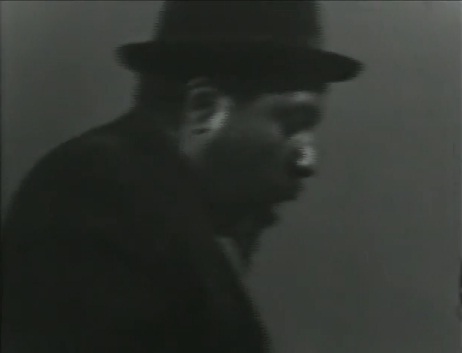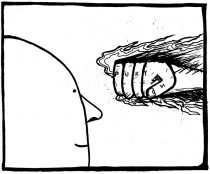Discuţii despre moartea jazzului
|
The reason jazz was so popular back in the day, more than now, is because it was practically the only genre of music out in America besides the blues (is the blues dead, too?). Now we have hundreds of genres and sub-genres to choose from that can be traced back to modern-day popular culture and sentiment on a global scale. (Russ Gershon) What differentiates jazz music – or more accurately, jazz musicians – from those of other genres is their willingness and ability to improvise on a wider variety of parameters than other musicians. They don’t just improvise new melodies on recurring chord sequences (as in playing standards or blues), but improvise form itself, improvise, to give a few examples, using only rhythmic variations on static harmony, improvise without preset parameters, improvising using freely employed harmonic resolution patterns but no preset forms. (Coly Healy) Jazz is improvisation. It fed on musical genius to provide it with sustenance in the form of new melodies. In the 1960s the genius went elsewhere. Jazz has been dead for 50 years in the same way that playing Bach is playing dead music. That doesn’t mean its not worthwhile doing, but anything original will probably be crap. You can re-interpret, but you can’t make new Beatles, Bach or Jazz. (Paul Wright) “The End of Jazz” omits a primary factor in the notion that jazz is dead and the dearth of musical standards from which jazz musicians draw their inspiration and creativity. I call it “beatle-lism.” When the beatles “infected” the musical scene around 1960, every kid who might have been drawn to play the saxophone, (the instrument most able to mimic the human voice and all its emotions), became a three-chord-is-all –I-need -to –know guitar player with booming non-musical amplified noise accompaniment. (Barney Lessing) Jazz is not dying, because of the lack of new classic repertoire. It is simply being held back by fans who have not bought a new jazz record or gone to a jazz concert since the 70s. (Bill Cohen) Articolul (dar mai ales restul comentariilor) poate fi citit aici. foto: captură Thelonious Monk în concert, performând Don’t Blame Me, 1966. Comentarii |










